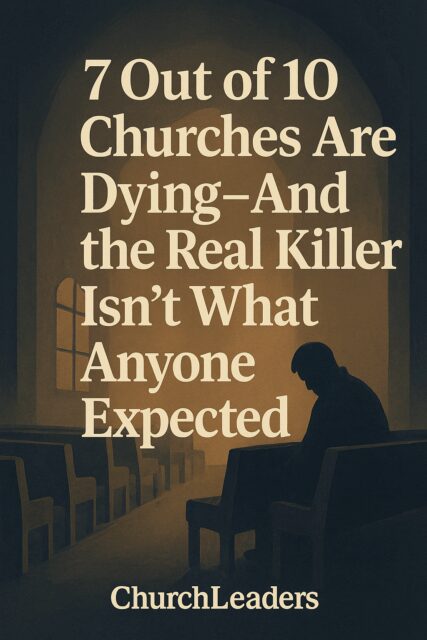Picture this: A phone call comes in at 2 a.m. On the other side is a pastor in New England, voice cracking, who wanted to know if his church was dying. Not in the traditional sense—attendance held stable, giving remained consistent, and conventional programs ran on schedule. But something felt broken at the core.
“My elders spend 45 minutes debating election outcomes,” he says, “and 10 minutes on discipleship strategy. That can’t be right.”
Well, he was correct. It was not right. And his church was far from alone.
The Crisis Nobody Expected
David Kinnaman, CEO of Barna Group, has studied American Christianity for decades. His 2024 research with Gloo revealed something startling: “Today’s polarized cultural climate and the ongoing strain of political division place unprecedented pressure on pastors striving to lead effective leadership in a changing world.“
The data paints a stark picture. When Lifeway Research asked pastors in September 2024 whom they planned to vote for, 23% refused to answer. Read that again—nearly one in four pastors would not say. In 2016, only 3% refused. In 2020, just 4%.
Scott McConnell, executive director of Lifeway Research, understood the implications: “The growing number of pastors unwilling to respond with their voting intentions shows how sensitive or divisive politics has become in some churches.”
This is not about political engagement. Civic participation is noble. This is about what happens when political passion eclipses spiritual devotion—when believers demonstrate greater emotional investment in electoral outcomes than spiritual transformation.
Ministry leaders refer to this as “functional idolatry.” Classical idolatry involved worship of false gods. Functional idolatry occurs when legitimate concerns receive ultimate devotion reserved for divine worship.
The Strategic Assessment: Why This Matters Now
Dr. Thom Rainer, founder of Church Answers and former president of Lifeway Christian Resources, has conducted groundbreaking research on church health for four decades. His projections are sobering: post-COVID, as many as 15,000 churches face the choice to close. Seven out of 10 churches in America are declining.
But here is the strategic insight that changes everything: Political division ranks among the most significant barriers to church health in contemporary America. Traditional revitalization strategies—such as better programs, updated worship, and structural changes—fail to address the root issue when congregations prioritize political concerns over spiritual ones.
Think about that. You can have the best preaching, the most dynamic worship, the finest facilities—and still watch your church die because hearts are captured by something other than Christ.
The Real-World Impact on Ministry Leaders
Research reveals the toll on pastoral leadership:
- Pastors rating of their overall quality of life as “excellent” dropped from 42% to 19%
- Those who believe they have “true friends” decreased from 34% to 19%
- Pastors ranking of community respect as “excellent” fell from 22% to just 7%
- 42% of pastors seriously considered quitting ministry as of March 2022
Jon C. Nelson, who pastors while navigating these tensions, explained the challenge during a 2024 Southern Baptist Convention panel: “If you are hearing feedback in stereo, you are probably addressing the issue in the correct manner. To stand with what the Bible says creates a juxtaposition to both political parties and will cause you to stand not just on the Bible but each political parties’ toes.”
That kind of courage requires strategic wisdom. Eric Costanzo, another pastor on the panel, added, “Dealing with political matters can quickly become divisive. I’ve found that much of the conflict comes from people’s expectations. If those assumptions are challenged, conflict can often arise.”


